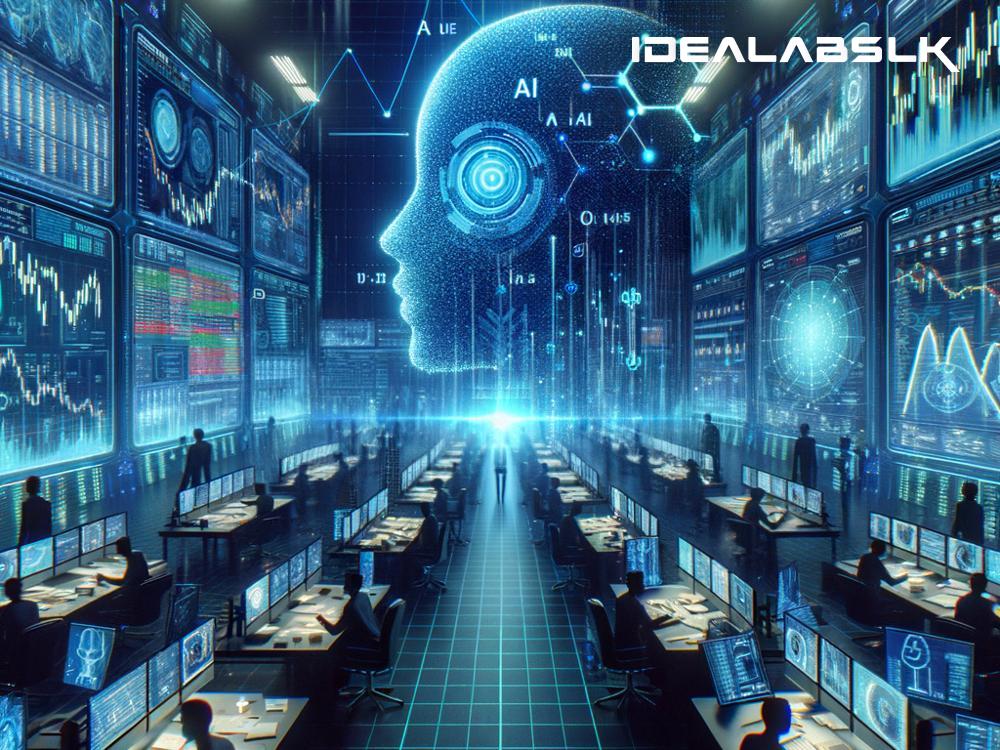AI for Trading: Unlocking Superior Prediction Accuracy
In the ever-evolving world of trading, the hunt for accuracy is relentless. Traders across the globe are constantly on a quest for the Holy Grail – a way to predict market movements with precision. Enter the game-changing solution: Artificial Intelligence (AI). AI-based systems are revolutionizing the trading world by offering predictions with a level of accuracy that was once thought unachievable. Let's dive into how AI is shaping the future of trading, making it possible for traders to navigate the markets with newfound confidence.
What is AI-Based Trading?
AI-based trading involves using computer programs that can understand, learn, and make decisions or predictions about trading financial instruments. These programs, powered by algorithms and machine learning, analyze massive amounts of data at speeds no human can match. They look for patterns, trends, and signals across markets and assets, making sense of complex and chaotic market environments in a fraction of a second.
The Power of Machine Learning
At the heart of AI-based trading systems is machine learning, a subset of AI that enables computers to learn from and interpret data without being explicitly programmed. This means that AI-based systems can adapt to new data and evolving markets, improving their predictions over time. Whether it's historical prices, news articles, or social media sentiment, these systems process and analyze countless data points in real time, uncovering opportunities that may be invisible to the human eye.
Enhanced Accuracy in Predictions
So, why are AI-based systems more accurate? The answer lies in their capacity to process and analyze vast amounts of data far beyond human capabilities. Traditional methods of trading analysis, such as technical analysis or fundamental analysis, while still valuable, are limited by the human capacity to process information. AI, on the other hand, can digest and learn from terabytes of data, spotting trends and patterns that would take humans years to uncover.
For example, an AI system might notice that a particular stock's price tends to rise following a specific combination of economic indicators, trading volumes, and sentiment analysis from financial news. By recognizing this pattern, the system can predict with a high degree of accuracy that the stock's price is likely to rise again under similar conditions.
Reducing Human Error
Another significant advantage of AI in trading is its ability to operate devoid of emotions. Human traders, regardless of experience, are susceptible to emotional biases that can lead to irrational decisions. Fear of missing out (FOMO) or holding onto a losing position in the hope it will recover are common pitfalls. AI-based systems, however, stick strictly to the data. Their decisions are based purely on analysis, significantly reducing the risk of costly emotional errors.
Real-Life Success Stories
Cases abound of traders and firms leveraging AI to achieve remarkable results. Some hedge funds using AI algorithms have consistently outperformed the market, delivering superior returns to their investors. These systems can also execute trades at optimal times, further boosting profitability by taking advantage of even the smallest market inefficiencies.
The Road Ahead
As impressive as AI for trading is today, we're just scratching the surface of its potential. Ongoing advancements in AI, machine learning, and data analytics promise to unlock even higher levels of prediction accuracy. Moreover, as more historical and real-time data becomes available, these systems will only grow smarter, making the future of AI trading an exciting prospect.
Embracing the AI Revolution
For traders, embracing AI doesn't mean abandoning traditional methods and instincts but augmenting them with powerful tools that can provide a competitive edge. By combining human insight with the analytical prowess of AI, traders can navigate the markets with greater confidence and precision.
In conclusion, AI-based systems are not merely a passing trend but a transformative force in the world of trading. They offer us a glimpse into a future where market predictions are not just better but remarkably accurate, reducing risks and opening up new opportunities for traders worldwide. As technology continues to evolve, one thing is clear: AI will play a pivotal role in shaping the trading landscapes of tomorrow.

